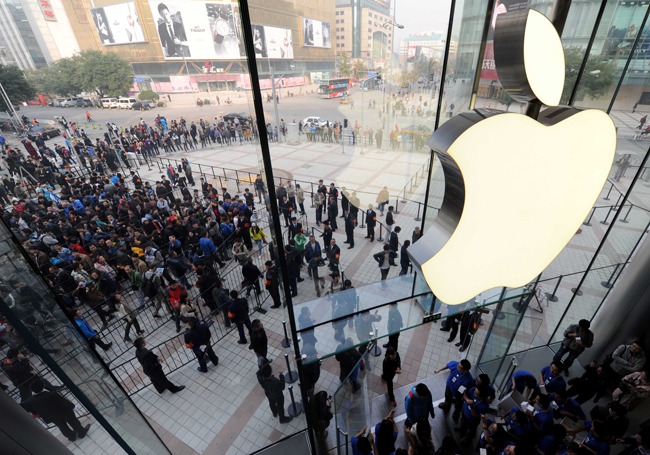Experts Matter. Find Yours.
Connect for media, speaking, professional opportunities & more.

Need an expert to chat about movies and tv? We’ve got just the person for your coverage!
UMW’s experts are in the news and just recently Antonio Barrenechea, associate professor of English, was interviewed for two articles in the web magazine MEAWW. The first was on the relationship between summer and romantic comedies and why that season in particular seems to hold the ideal climate for on-screen love. "The Canadian literary theorist, Northrop Fry, provides insight into its origins. As with the seasons of the year, genres deploy archetypes of birth, maturation, decay, death, and rebirth, all within natural cycles," said Antonio Barrenechea, Professor of English at the University of Mary Washington. Professor Barrenechea opines that for Fry, comedy belongs to spring, and romance to summer. "Nature as background thus directs the foreground of social ordering and human affairs. Greenery and florals are to the romantic comedy as deserts are to the Western, and dark places and climates are to horror," Barrenechea added. This is translated beautifully on screen in movies like 'Call Me By Your Name', 'My Best Friend's Wedding', and the 'Before Sunrise' movies. The second probed the link between intelligence and dark humor. In this piece, our expert explained our passion for dark humor and death. Antonio Barrenechea, Professor of English at the University of Mary Washington has a different opinion of 21st Century's vicarious morbidity fans. "Dark humor responds to our absurd condition with the armor of world-weariness. Except that, of course, we also know we can't really laugh such troubles away — which is why dark humor has a fatalistic dimension built into it," he said. Between Netflix, streaming services, TV, cable and the big screen – we are always talking about movies. If you are covering, don’t hesitate to let one of our experts help with your stories. Antonio Barrenechea, associate professor of English, specializes in literature of the Americas and the cinema. He’s available to speak with media, simply click on his icon to arrange an interview.

Do you go to the school of your choice, your parent’s almamater or as far away from home as humanly possible? Picking a college or university is a challenge at the best of times and one that impacts most American families in one way or another. A study completed by Professor of Psychology Holly Schiffrin was cited in an article in The News Minute entitled “How Much Freedom do Students have while Choosing their Undergraduate Course?” “One study in the Journal of Child and Family Studies found that parents’ excessive involvement in their children’s lives yields unfavourable results. The lead author Holly Schiffrin argues, ‘Parents are sending an unintentional message to their children that they are not competent.’ This is in turn, could result in feelings of depression and dissatisfaction.” The path to university and college is never easy and is always a journey filled with pressure and unsolicited advice. All the factors involved, well intended or not can come with consequences and outcomes. It’s an interesting topic and if you are covering, let one of our experts help. Dr. Holly Schiffrin is an internationally known expert on intensive and helicopter parenting. She is available to speak with media, simply click on Holly’s icon to arrange an interview.

China Employs Mass Surveillance as Authoritarian Tool in Xinjiang Province
China has been engaged in high-tech surveillance of citizens in its Xinjiang province, according to a New York Times report, creating “an incubator for increasingly intrusive policing systems” that could expand automated authoritarianism across the country and abroad. One of the prime motivators, ostensibly, is to monitor and subdue minority religious and ethnic groups. This practice presents obvious, multi-faceted ethical issues, says Benjamin R. Mitchell, PhD, an assistant professor in Villanova’s Department of Computing Sciences with expertise in computer ethics. “The Chinese government surveillance project in Xinjiang is a perfect example of why we must be cautious and thoughtful about the deployment of technology. Most of the basic technologies being deployed were not originally developed for this application, and many of them have alternative uses which are potentially beneficial, or at the very least less clearly harmful to human rights. But applying these technologies to the surveillance and oppression of large groups of citizens still requires a large, intentional effort, making this as much a social and moral problem as it is a technological one.” Modern technologies, constantly being refined and developed, have brought us closer to the potential spread of totalitarian states, Dr. Mitchell says. “George Orwell’s 1984 was intended as a cautionary tale, but there have always been authoritarian regimes that have viewed it as a how-to manual. In the past, however, the manpower requirements for implementing such a system made it impractical to scale up to very large target groups. Modern technologies like automatic facial recognition and machine learning are now beginning to make widespread deployment of such systems possible.” Decreasing costs of technological surveillance systems will make their misuse even more likely, and those that employ them are justly open to criticism and opposition, Dr. Mitchell noted. “While the cost and manpower requirements are still likely too high to deploy such a system nationwide, the costs are steadily being driven down through research and development, meaning the development of a totalitarian information state is easier than ever before. It is entirely appropriate to critique governments, companies, or individuals who knowingly contribute to the construction and deployment of systems intended to oppress.” Although technology plays a key role in the Chinese attempt to oppress or eliminate targeted groups within its own borders, it is certainly not the first of its kind to do so through authoritarian surveillance, says Dr. Mitchell. “We can look at examples like Nazi Germany or Soviet East Berlin to see how this type of surveillance and suppression has been used in the past; the technological sophistication may have been less, but the risks to human dignity and freedom were broadly the same. The technology is certainly an enabling factor, but the fundamental problems presented here are not new ones. Security is important for human flourishing, but we must remember that the targets of pervasive surveillance can never feel secure; in pursuing security thoughtlessly, we can destroy it. If we are to be moral, we must consider the security of all people, not just those in a position of power,” he concluded.

Hurricane Season Starts June 01 – Are We Ready?
It’s that time of year again … where the warm winds of summer bring us tropical storms and hurricanes. Forecasters looking at the 2019 Atlantic Hurricane Season are predicting a slower year. It looks like El Niño is currying favor and its cooling temperatures mean less frequency of storms. So far, experts expect 12 to 14 tropical cyclones this season. Of those, five to seven could become hurricanes and two to four are predicted to become major hurricanes. But as we’ve learned from the past, it takes only one storm to devastate an area. In a previous post, Michael Prietula was featured and lent his expertise to show how communities and governments need to be prepared. Michael J. Prietula (PhD, MPH) is Professor in the Goizueta Business School and a senior faculty member in Emory's Center for Neuropolicy. He is an expert in the areas of organizations is crisis and is an expert in preparedness. He is available to speak with media, simply click on his icon to arrange an interview.

Apple continues to shine atop the Forbes Most Valuable Brands List
It’s a list that reads like the uniform of a NASCAR pit-crew. The top names and logos of some the most popular and well-known companies in the world. And this year, it’s once again Apple sitting on top of the list of Forbes World’s Most Valuable Brands. Rounding out the top 10 were also some of the heaviest hitters and most well-known names in the market. Here’s the list. 1. Apple 2. Google 3. Microsoft 4. Amazon 5. Facebook 6. Coca-Cola 7. Samsung 8. Disney 9. Toyota 10. McDonald’s Now building a bran in not easy. And one bad news story or misstep can taint a brand forever – just ask British Petroleum or the Weinstein Company. So, what does it take to build, maintain and preserve a brand for decades? It’s not as easy as you might think. If you’re covering or curious let one of our experts help. Professor Ryan Hamilton is a consumer psychologist, whose research investigates shopper decision making. In particular, he is interested in how brands, prices and choice architecture influence decision making at the point of purchase. Ryan is available to speak with media regarding brands and brand reputation – simply click on his icon to arrange an interview.

Belief in the ‘Prosperity Gospel’ Does Not Turn People into Successful Entrepreneurs
But the belief that God financially rewards the faithful can fuel values linked to entrepreneurial thinking, Baylor University study finds Belief in the “Prosperity Gospel” — that God financially blesses faithful followers — does not turn individuals into successful entrepreneurs. But prosperity beliefs can fuel values linked to entrepreneurial thinking, such as power and achievement, according to a Baylor University study. However, researchers found no direct relationship between prosperity beliefs and willingness to take risks, and little connection to recognizing opportunities. Risk-taking and identifying opportunities are typical traits of entrepreneurs, according to the national study. “As revealed in our findings, a belief that God will provide financial benefit to the faithful is not enough to push someone to launch a business,” said lead author Kevin D. Dougherty, Ph.D., associate professor of sociology in Baylor’s College of Arts & Sciences. “The relationship between prosperity beliefs and starting a business is indirect and inconsistent.” The study — Prosperity Beliefs and Value Orientations: Fueling or Suppressing Entrepreneurial Activity” — is published in the Journal for the Scientific Study of Religion. For the study, researchers analyzed data from a nationally representative survey of 1,066 working adults. Their goal was to connect prosperity beliefs, human values, entrepreneurial attitudes and entrepreneurial action. They found that values — both by themselves and in conjunction with religious beliefs — are important predictors of how and whether individuals might launch a business. Participants responded to a three-item scale to measure beliefs that faith and faithful behavior lead to success at work and in business. The items included: “God promises that those who live out their faith will receive financial success;” “Believers who succeed in business are evidence of God’s promised blessing;” and “I believe faithful believers in God receive real financial benefits in this life.” Participants also responded to questions relating to The Theory of Basic Human Values, which recognizes such universal values as openness to change, achievement, security, power and benevolence. In general, “entrepreneurs tend to think differently than non-entrepreneurs, prizing achievement and self-direction while downplaying tradition and conformity,” said co-author Mitchell J. Neubert, Ph.D., professor of management in Baylor’s Hankamer School of Business. Value orientations of self-enhancement and openness to change are associated with recognizing opportunities and taking risks — entrepreneurial behaviors that correlate with creating new businesses. While prosperity beliefs by themselves show little direct impact on entrepreneurship, they do influence the impact of values and attitudes related to creating a business. Prosperity beliefs can strengthen the relationship between self-enhancement values and opportunity recognition, but they seem to reduce the relationship between openness to change and willingness to take risks. Another significant finding pertains to gender. Men and women who accept prosperity beliefs are no different in their willingness to take risks or start businesses, said co-author Jerry Z. Park, Ph.D., associate professor of sociology in Baylor’s College of Arts & Sciences. In general, risk-taking and business startups are more common among men. The study also shows that education and experience are key predictors of entrepreneurship, but those resources may be difficult to acquire for some prosperity believers because of social and economic circumstances. While individuals in that group have hope, it seems contingent on divine action rather than human action, Neubert said. “Can prosperity preachers Joel Osteen and T.D. Jakes save the U.S. economy? Probably not. But nor are they damning it,” Dougherty said. “The type of positive, self-help gospel they preach can enhance specific value orientations that are related to entrepreneurial thinking and entrepreneurial behavior.” *The research was supported by a National Science Foundation grant. ABOUT BAYLOR UNIVERSITY Baylor University is a private Christian University and a nationally ranked research institution. The University provides a vibrant campus community for more than 17,000 students by blending interdisciplinary research with an international reputation for educational excellence and a faculty commitment to teaching and scholarship. Chartered in 1845 by the Republic of Texas through the efforts of Baptist pioneers, Baylor is the oldest continually operating University in Texas. Located in Waco, Baylor welcomes students from all 50 states and more than 90 countries to study a broad range of degrees among its 12 nationally recognized academic divisions. ABOUT THE COLLEGE OF ARTS & SCIENCES AT BAYLOR UNIVERSITY The College of Arts & Sciences is Baylor University’s oldest and largest academic division, consisting of 25 academic departments and seven academic centers and institutes. The more than 5,000 courses taught in the College span topics from art and theatre to religion, philosophy, sociology and the natural sciences. Faculty conduct research around the world, and research on the undergraduate and graduate level is prevalent throughout all disciplines. Visit www.baylor.edu/artsandsciences.

Why not make Don’t Fry Day…every day the sun is shining?
Looking to get the long weekend started right? Well then before you head out, lather up and apply that sunblock. The National Council on Skin Cancer Prevention has designated the Friday before Memorial Day as “Don’t Fry Day” to encourage sun safety awareness and to remind everyone to protect their skin while enjoying the outdoors. The American Cancer Society estimates there will be more than 73,870 new cases of malignant melanoma, the most serious form of skin cancer, and more than 2 million new cases of basal cell and squamous cell skin cancers in the U.S. Fortunately, skin cancer is highly curable if found early and can be prevented. Remember to “Slip! Slop! Slap!...and Wrap” when you’re outdoors. Slip on a shirt Slop on broad spectrum sunscreen of SPF 30 or higher Slap on a wide-brimmed hat And wrap on sunglasses. The best way to detect skin cancer early is to examine your skin regularly and recognize changes in moles and skin growths. There’s a lot to know and we have an obligation to ourselves and our loved ones to make them sun-safe and cancer free. If you are covering this topic or need to know more, let one of our experts help. Dr. Jigarkumar Parikh is a medical oncologist specializing in kidney cancer, prostate cancer, bladder cancer and melanoma at the Georgia Cancer Center at Augusta University. He is available to speak with media regarding skin cancer – simply click on his icon to arrange an interview.

Georgia Southern researchers find adverse childhood experiences associated with short sleep duration
Georgia Southern University professors from the Jiann-Ping Hsu College of Public Health (JPHCOPH) recently completed a study that shows adverse childhood experiences are associated with short sleep duration in adults. Recently, the study was published in SLEEP, the benchmark international journal for sleep and circadian science. The JPHCOPH team looked at nationally representative data from 22,403 adults. Participants in the study who had adverse childhood experiences were more likely to have short sleep duration (less than 6 hours per night) than those without such experiences. Each adverse experience increased the likelihood of insufficient sleep by over 20%, and the association remained throughout adulthood. The study participants were part of the 2011 Behavioral Risk Factor Surveillance System, conducted by the Centers for Disease Control, in which they completed questionnaires detailing childhood experiences of abuse, neglect and household challenges as well as how many hours they sleep nightly as adults. Short sleep duration was not accounted for by mental health challenges or poor physical health, which suggests there are different underlying causes. Over 60% of adults in the U.S. report having experienced at least one adverse childhood experience. The results emphasize the importance of childhood neurodevelopment on long-term health outcomes. Also, the data provides new information on how long adverse childhood experiences may affect sleep and calls for further investigation of the role of childhood experiences in people with sleep challenges. Do you need to know more? Are you looking at stories or to cover how adverse childhood experiences impact sleep and how the long-term effects can follow that individual into adulthood? Let our experts help. Kelly Sullivan, Ph.D., is an expert in epidemiology and neurological diseases and Haresh Rochani, DrPh, is the director of the Karl Peace Center for Biostatistics in the Jiann-Ping Hsu College of Public Health at Georgia Southern University. Both experts are available to speak to this topic – simply click on either icon to arrange an interview.

Expert perspective on a trade war with China and how it could impact a Trump presidency
Trade negotiations between the United States and China have continued to deteriorate over the last few weeks. In efforts to pressure the Chinese to make reforms to trade-related issues such as forced technology transfer and intellectual property rights, the United States has raised tariffs on nearly all Chinese exports. While there is a consensus among experts that these trade issues harm U.S. producers and must be dealt with, there is not universal agreement that a trade war is the best way to make it happen. Who will feel the effects? It is apparent that both consumers and producers in the U.S. will feel the effects of the trade war. Producers will not be able to absorb the increased costs from the raising tariffs and will need to pass them along to consumers. Consumers will begin to see the prices increase on a host of retail goods, such as clothing and apparel, toys, and home goods. Partners replaced? In addition, as the Chinese retaliate with increased tariffs on U.S. exports, such as agricultural goods, producers from other countries with lower tariffs are stepping in to take the place of the U.S. exporters. For example, Brazilian soybean producers are more than happy to sell their product to China at a lower cost. Once lost, it may be difficult for U.S. farmers to regain these important Chinese markets. A political price to pay? It appears that the effects of the trade war may hit the Trump administrations base, in agricultural and manufacturing regions, disproportionately. However, the administration may see the trade war as beneficial to Trump’s 2020 reelection campaign, as Trump is being perceived as being tough with the Chinese and holding them accountable to unfair trade practices. That appears to resonate with his base. However, it remains to be seen how long his base will continue to support this approach as both producers and consumers continue to feel the economic pinch of the growing trade war with China. There’s a lot to know about the short and long-term impacts of a trade war with China and that’s where or experts can help. Matt has taught business and marketing courses at Saint Mary’s University of Minnesota since 2008. Prior to Saint Mary’s, he worked in both the banking and the non-profit sectors, most recently with a non-governmental organization (NGO) with operations in more than a dozen countries. Matt is an expert in political and economic development and is available to speak with media. Simply click on his icon to arrange an interview.

The return on measles and how this once eradicated disease is making an epic comeback
Once long gone and considered a thing of the past – measles is back in America. The childhood disease that was usually easily contained by a simple shot along with vaccinations for mumps and rubella, used to ensure that our communities and the general population enjoyed herd immunity and remained for the most part safe from these once dangerous and highly-contagious diseases. But things have changed, and this year America has set a record … unfortunately taking public health a few steps back along with it. “Less than two weeks ago, the number of measles cases reported in 2019 broke the previous recent annual record, beating 667 cases reported in 2014. At the time, that was the highest number of cases reported since the disease was eliminated in the U.S.” May 06, 2019 – ABC News It’s a two-pronged problem and not so easy to unravel, first of all: Is it a matter of effective communication? Is public health losing the battle to online fake news? Are parents taking for granted the value of vaccinations? Does government need to intervene with mandatory immunizations? As well, there’s the bigger picture to consider… Who isn’t getting vaccinated and why? What’s the risk to the general population? And who are the compromised people who justifiably can’t be immunized and what threat does this pose to them? There are a lot of questions out there as well as a lot of false information – and that’s where our experts can help. Dr. Jessica Smith Schwind researches emerging infectious diseases in global health settings. She is an expert in the areas of epidemiology and disease detection. Dr. Melissa Carrion is an Assistant Professor in Women, Gender and Sexuality Studies and her current research is focused on maternal vaccine refusal and what are the common messages and experiences that influence these decisions. Both are available to speak with media regarding this issue – simply click on either icon to arrange an interview.







